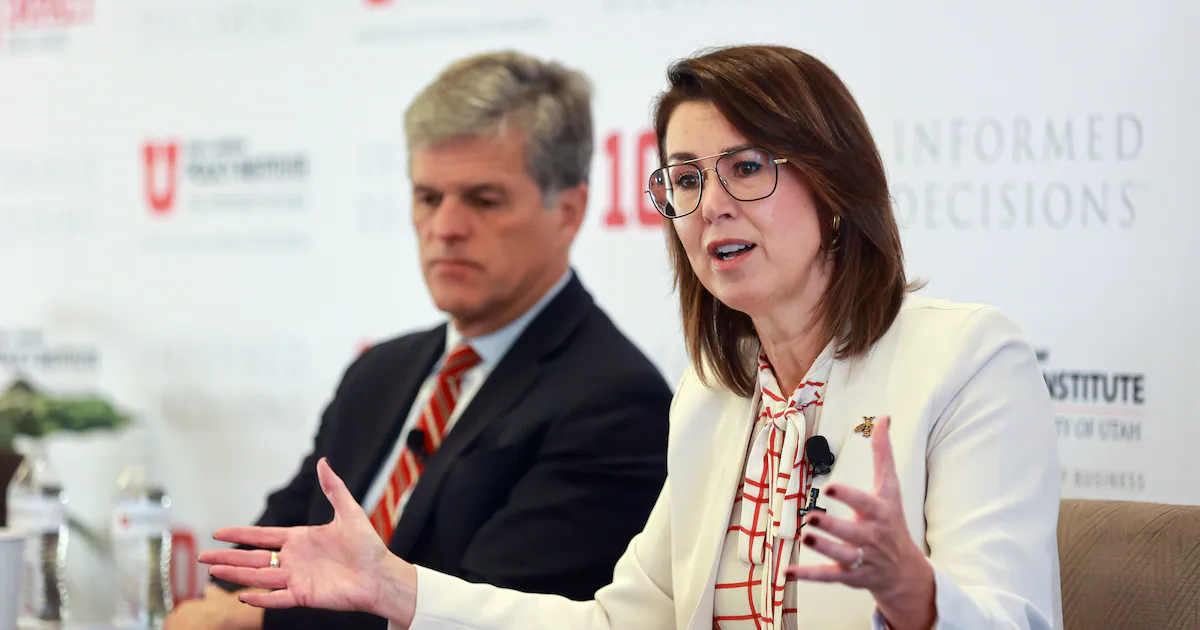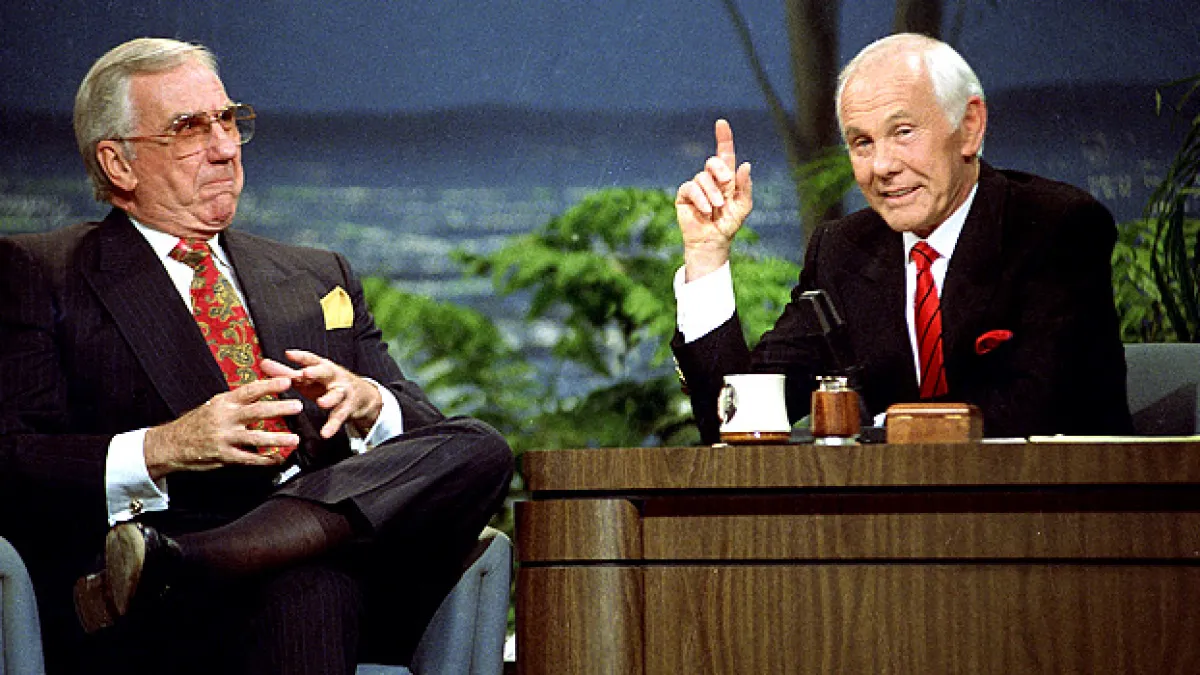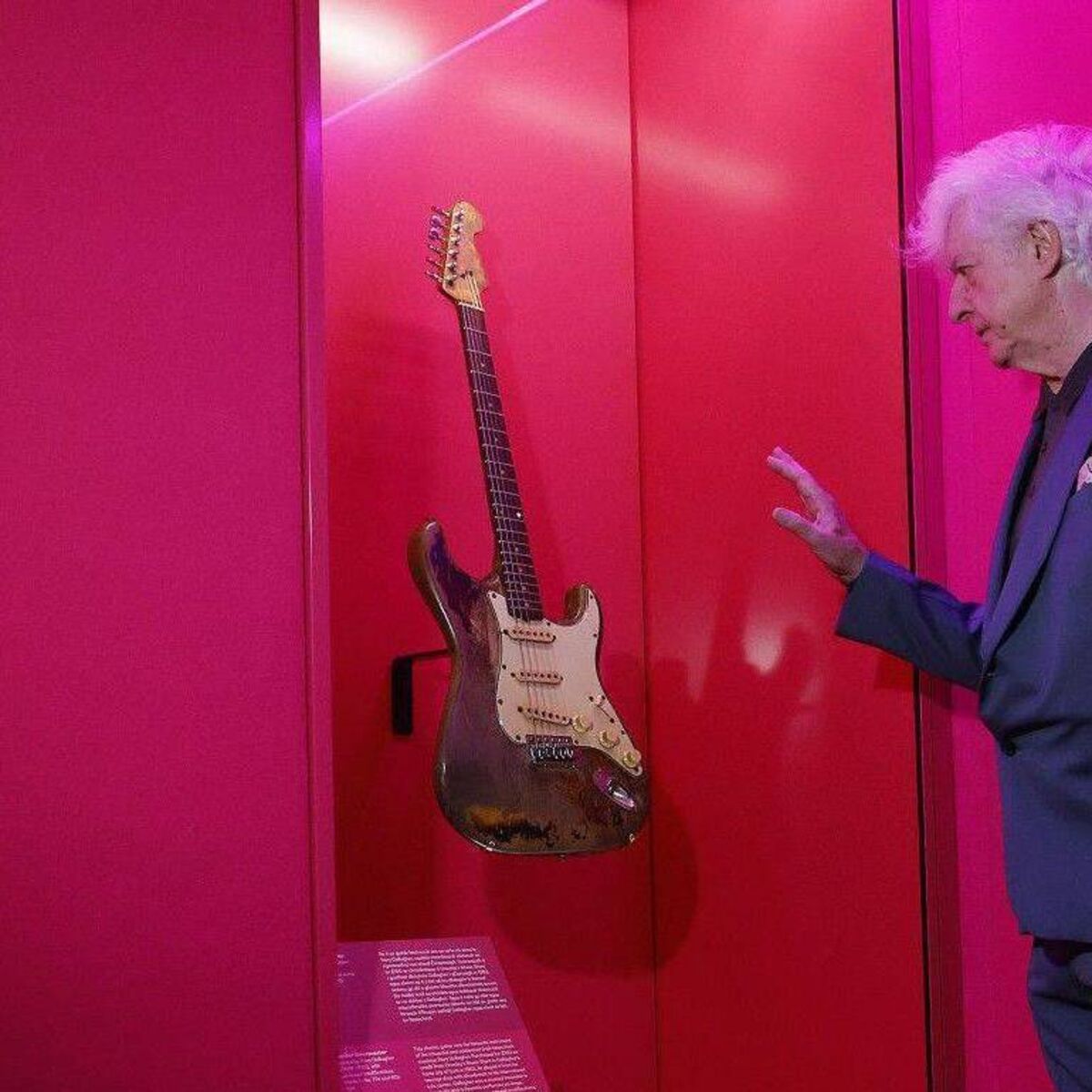Copyright Salt Lake City Deseret News

Utah recommitted itself as the hub of national depolarization efforts following the assassination of conservative organizer Charlie Kirk in September. Utah Gov. Spencer Cox encouraged Americans to seek an “off-ramp” from outrage; a coalition of peacemaking nonprofits launched a new initiative to encourage cross-partisan dialogue; the Dignity Index hosted its first-ever leadership summit in Salt Lake City; and Utah residents showed the nation how to respond to tragedy with connection and charity. These principles of civility, collaboration and compassion are not just good for the soul, Utah Lt. Gov. Deidre Henderson said on Tuesday. They are essential for the future political health of Utah and the United States of America. During a Kem C. Gardner Policy Institute “Newsmaker Breakfast,” Henderson said leaders and voters have strayed from the founders’ vision of a country where institutions are built and strengthened by “personal and civic virtue.” “We have gotten away from that long-term, big-picture thinking, and we have to get back to it, because policies come and go,” Henderson said. “And when we put policies above principle, we’re going to destroy ourselves.” The Utah Legislature is an example of prioritizing process over immediate outcomes, according to Henderson, because the Republican supermajority involves Democrats in their deliberations even though they do not need to. A focus on listening and practicing compromise can frustrate those looking for immediate “wins,” Henderson acknowledged. But by valuing how they treat those with opposing worldviews, elected officials can create a stronger community overall. “I’m as much a part of the problem as anybody,” Henderson said. “We get so upset when we see the bad behavior, when we see the bad examples, but we can’t control what other people do. We can only control what we do.” What about Trump? In a Q&A discussion, Henderson responded to criticisms from both the left and the right with the help of her fellow panelists, Dignity Index co-creator Tim Shriver and Utah System of Higher Education Board Chair Amanda Covington. Bruce Johnson, the vice president of government affairs at the Federal Tax Authority, asked whether efforts to improve political dialogue are futile because the current occupant of the White House “exemplifies lack of allowing dignity to other people.” Following the assassination of Kirk, President Donald Trump distinguished himself from the slain activist by saying he hated his opponents. In recent days, Trump used his official social media account to post AI videos of himself dumping poop on progressive activists. These examples would rank poorly on the Dignity Index’s eight-point scale that Shriver created in 2021 to call out political rhetoric that demeans others and to highlight speech that recognizes the human dignity of opponents. However, Shriver repeatedly turned questions back to the questioners, saying the Dignity Index only works to change the “culture of contempt” if you recognize that hateful rhetoric exists in both parties and apply the index inwardly. In the wake of Kirk’s death, many left-leaning social media accounts were found celebrating. And Minnesota Democratic Rep. Ilhan Omar, among others, called Kirk a “hateful man,” said his legacy belonged to the “dustbin of history” and shared a video blaming him for his own death. “We can’t really point the finger about dignity at anyone, not at a party, not at a person, not at a cause, not an organization,” Shriver said. “It literally is a question of really internalizing the issue of the person in the mirror.” In an interview with the Deseret News, Shriver clarified that “the government doesn’t have any role” in using the Dignity Index to regulate speech. He hopes the tool will increase free speech by encouraging people to engage with other viewpoints. The most effective way to counter toxic rhetoric in politics is to stop the cycle, Henderson said. It is easy to criticize others self-righteously or try to control the speech of others. But peacemakers do the opposite, Henderson said. “It’s the best form of protest to not allow ourselves to become like the people we’re worried about,” Henderson said. “Meeting contempt with love, it’s the best form of protest.” What about education? Since its inception, the Dignity Index has found a home at the University of Utah. President Taylor Randall recently approved a partnership with the Dignity Index resulting in its first office housed at the Gardner Institute. The office employs three full-time employees, costing the university $400,000 annually for salaries and equipment. The university also contracts with Shriver for $60,000 per semester for his work as a societal impact scholar. This partnership resulted in a 2024 study reviewing how a sample of voters ranked presidential campaign rhetoric, and there are plans for a national survey in coming months on how Americans view the concept of dignity in politics. As individuals become more likely to self-censor for fear of social sanctions — at school, in the workplace and online — Covington said that Utah universities have the chance to reinvigorate a culture of free expression and rigorous debate. “We are creating places for human connection,” Covington said. “This is a bright light for higher education, because there’s no better place to get students engaging with each other, to look in each other’s eyes, to see each other as assuming good intent.” However, some conservative activists worry that the approach taken by the Dignity Index will discourage bold conservative beliefs, or declarations of truth that offend some groups of people. Jamie Renda, the founder of political nonprofit Path Forward, attended Monday’s Dignity Index Leadership Summit and Tuesday’s panel discussion to make the point that the Dignity Index has the potential to alienate conservatives. Her concerns center around the Dignity Index training K-12 educators and expanding into higher education. This has the risk of teaching students to prioritize “being nice” over correcting falsehoods, Renda said. Renda also pushed back against Henderson’s argument that political figures should occasionally abandon policy victories to honor deeper principles that undergird the health of a constitutional republic. “That’s what policy is. It is the representation of your principles,” Renda said. “They’re forgoing principles that will impact our children, their education, our economy, our housing, our borders.”



